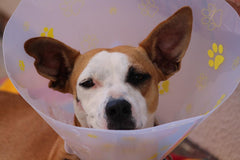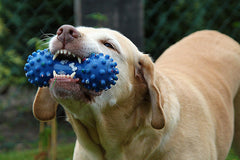
Rabbits are some of the best pets around. With their lovable demeanor, cute faces, and adorable hopping, bunnies are some of the most delightful pets that anyone can have. These reasons and others are why 2.5 million American households have rabbits. Of course, you'll want to take the best care of your bunny as possible, and part of that care involves giving them the ultimate rabbit diet.
Here are four things you need to include in any adult rabbit diet.
Rabbit Diet: Lots and Lots of Hay
The best thing for your rabbit to eat is hay. Hay should comprise the vast majority of your rabbit's intake and is considered one of the very healthy foods for rabbits.
Not all hay is the same, of course. The most natural food for your rabbit to eat is grass since that's what it would likely be eating in the wild. You can cut grass (not via a lawnmower, but scissors) and give that to your rabbit. Alternatively, you can simulate grazing by growing grass from seed in a pot.
Rabbits eat lots of food, though. Therefore, it's usually nearly impossible to provide fresh grass to a rabbit in captivity. The next best option is grass-based hay. Essentially, this is just grass that has been cut and left to dry. Once it dries, it becomes the hay that you find in any pet store as a healthy food for rabbits.
Grass hay is not the only type. You can also find oat hay, wheat hay, and barley hay, which are acceptable for your rabbit. You can also find dried grass (you might see this as "barn dried hay" in the pet store). Artificially-dried grass has a higher nutritional value than hay.
As a quick note, you might also see "alfalfa hay." This hay type has a higher protein content than grass hay and is thus unsuitable for most rabbit diets. The only case where alfalfa hay might be valuable is trying to grow younger rabbits or correcting a weight deficiency from a lousy adult rabbit diet.
Leafy Green Vegetables
Other foods that you should be giving to your rabbit are leafy green vegetables. Rabbits would eat these in the wild, so they are the best bunny diet choices. Leafy greens include romaine lettuce, mustard greens, carrot tops (not carrots - more on this later), cilantro, broccoli greens, and basil.
It would be best to avoid certain leafy greens, including collard greens, Swiss chard, kale, and parsley. While they won't necessarily cause your rabbit harm, they are high in calcium and may create problems for your rabbit's health if fed in excess. There are plenty of leafy green options available that don't require taking that risk, so there's little reason to do so!
Your Rabbit's Diet Can Consist of Other Vegetables
Leafy green vegetables are not the only ones that you can provide your rabbit. If you're so inclined, you can give your rabbit Brussel sprouts, endive, squash, green peppers, or broccoli. These vegetables are easy for your rabbit to digest and contain plenty of nutrients.
Some people want to feed their rabbits carrots (since that's the stereotypical rabbit food) or iceberg lettuce since it is prevalent in many of our refrigerators. Both of these foods are not healthy foods for rabbits. Carrots are very high in carbohydrates and will upset most rabbits' GI systems. Conversely, iceberg lettuce doesn't have anything (it's mostly water), so it is devoid of all the nutrients that your rabbit needs to survive.
Pellets
If you're looking for a more convenient feeding mechanism for your rabbits, you can also get grass pellets. These pellets are mostly compact hay in pellet form to make consumption easier. Note that these pellets aren't supposed to be your rabbit's only source of nutrition. Instead, these work in tandem with the other foods listed above to provide a full, nutritious diet for your rabbit.
The Ultimate Rabbit Diet: Hay and Vegetables
At its core, the rabbit diet is incredibly simple. All you need to feed your pet are hay and vegetables. For grass and hay, it's essential to choose a high-quality food that doesn't compromise nutrition. For vegetables, you should select high-quality leafy greens that are lower in calcium. Greens that are high in calcium can cause issues for your rabbit.
Despite the stereotype, rabbits do not thrive on carrots. They have too many carbohydrates. Stick with the leafy greens and hay to have the best bunny diet around!
What is the best diet for rabbits?
The best diet for rabbits is one that consists mostly of hay and leafy green vegetables. Grass and hay are the essential components of any rabbit diet and, therefore, have the most significant impact. You should select the best hay and provide copious leafy greens to give your rabbit the best nutrition possible.
Can a rabbit's diet be only hay?
Yes! Rabbits can survive on hay and water alone. In the real world, they would mostly eat grass. They might not come across any leafy green vegetables for a long time, depending on where they were. However, rabbits would always have copious amounts of grass close. Therefore, the stomachs of rabbits have adapted to survive on grass (hay) alone.
Can rabbits live on a human diet?
It's not likely. Even if your rabbit could somehow survive, it would certainly not thrive. Human diets are very high in sugar, fat, and other things that are detrimental to rabbits. Take an apple, for instance. For humans, apples are mostly healthy. You might have it as a snack so that way you don't have a bag of chips instead. However, an apple contains way too much sugar for a rabbit. If they eat any more than a teaspoon of it, they could quickly start feeling sick. Most people will suggest not feeding a rabbit an apple at all, or, if you do, keeping the amount as minimal as possible. There are many other food items like this. Plus, humans typically have a meat source that rabbits don't eat. The diets of humans and rabbits are mostly incompatible.
Check out our blog and follow me on LinkedIn to stay up-to-date!




